Here is Shir's:
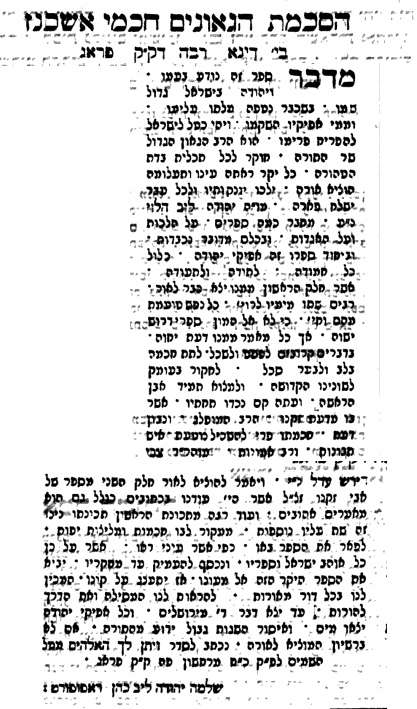
Zechariah Frankel's:
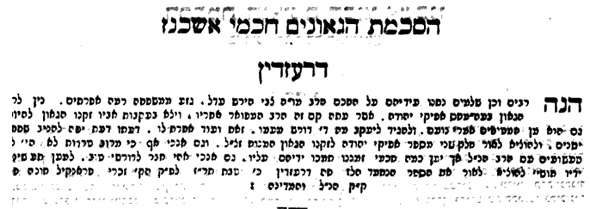
Ettlinger's:

Note that in 1863 it appeared entirely natural to collect these haskamos. But I'm no fool, I know that Frankel's at least would never reproduced in a modern reprinting. But why not the others?
Sure enough, the two volumes were reprinted in Jerusalem in 1999. This is really a deluxe edition. It's got everything. A lengthy and informative introduction, a facsimile of the original edition's title page, a facsimile of a manuscript in the author's hand, a letter from the author (with mistaken ID, see below), and haskamos:
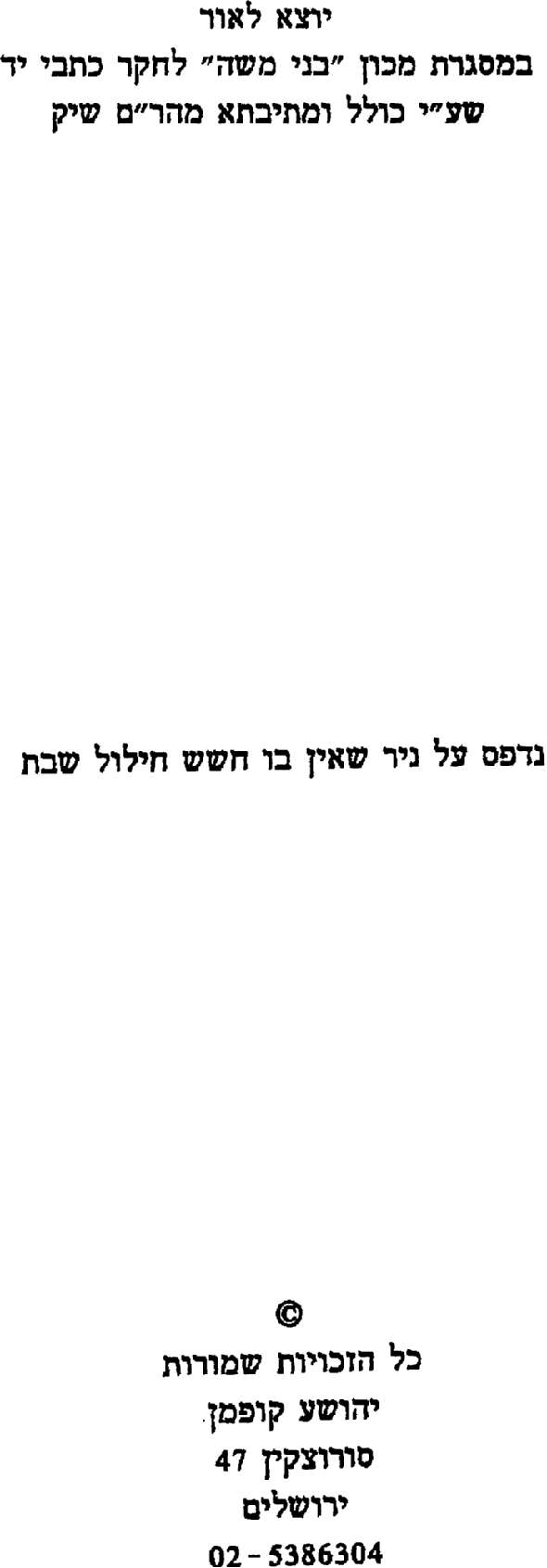
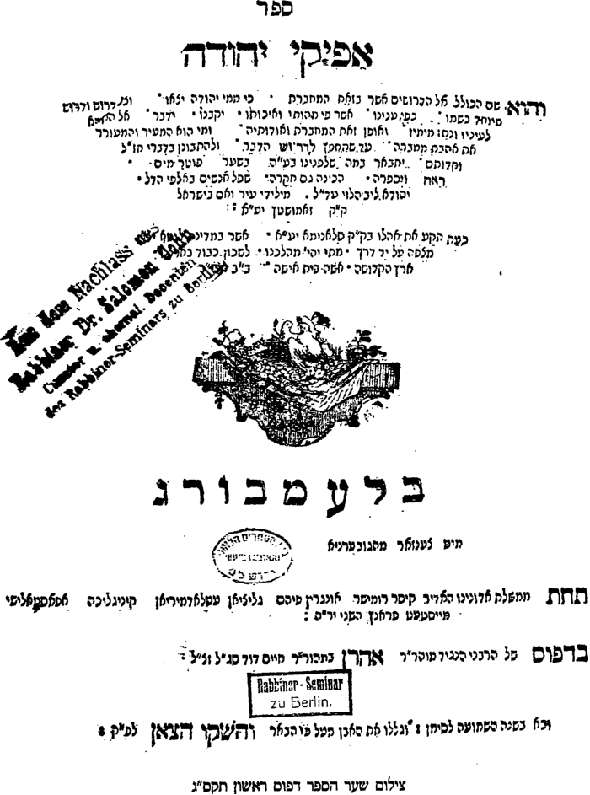
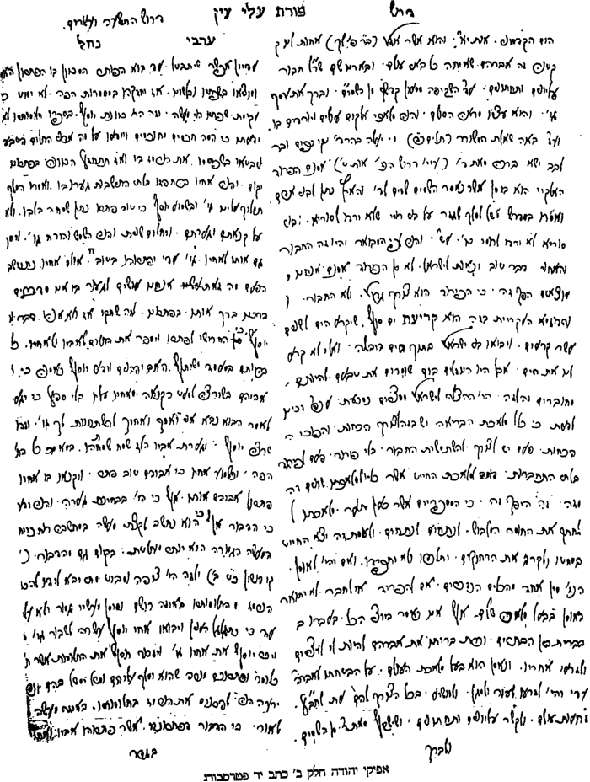
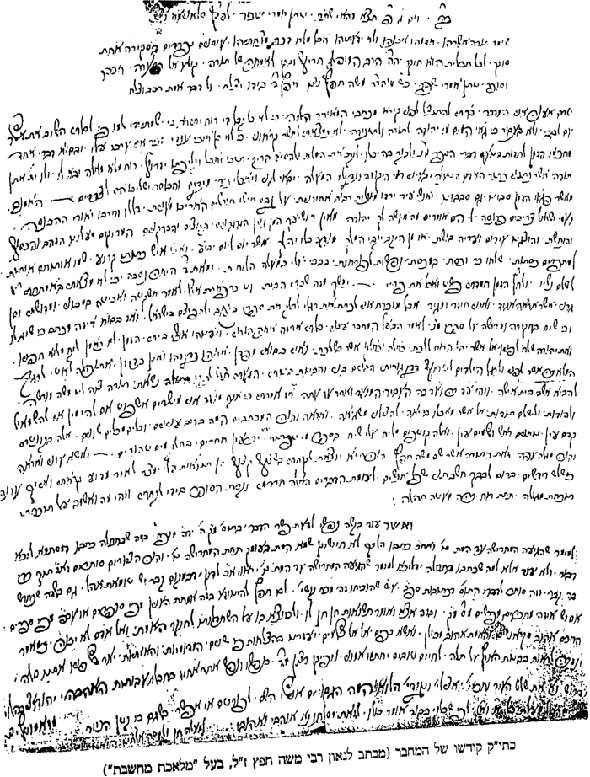
It's interesting that not a single haskama from the Lemberg 1863 edition is reproduced, and it's not as if they weren't aware of the edition. It mentions the editor, and even cites the haskama from R. Ettlinger (footnote 19):
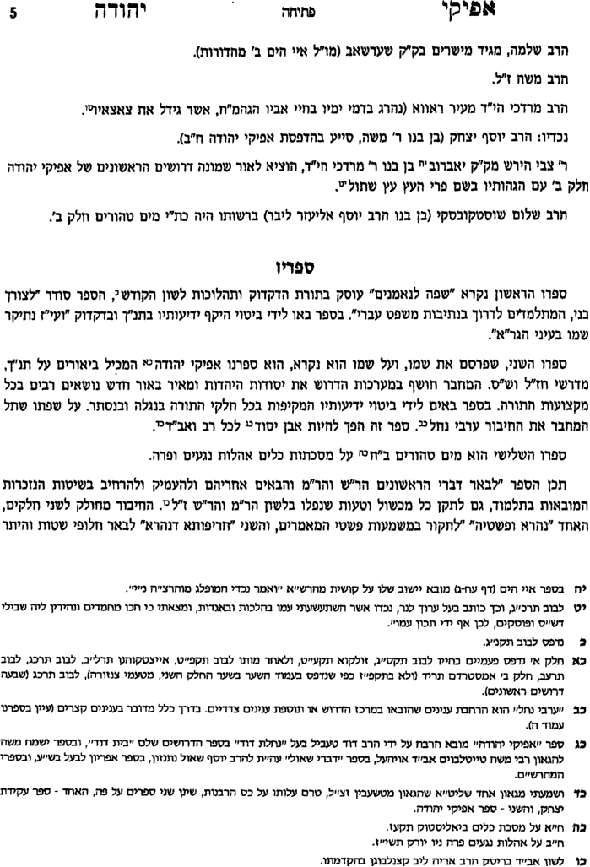
It's enough to make you go "hm." Interestingly, the letter by the author which is reproduced above is addressed to Rabbi Moshe Chefetz, which the editor misidentifies as the author of Maleches Machasheves. The aforementioned rabbi died in 1711 (see here). The Chefetz's (Hefez Gentili) were a prominent Italian rabbinic family, and likely the Rabbi Moshe Chefetz this was addressed to was the rabbi of Gorizia who died in 1798. I assume he was a grandson or even great-grandson of the author of Maleches Machasheves. He was also, interestingly enough, the rebbe of Isaac Samuel Reggio (Yashar).
Another interesting detail worth mentioning is that Rabbi Yehuda Leib Edel, talmid of the Gra, maggid of Slonim, euphemistically mentions Moses Mendelssohn in Afike Yehuda. In discussing theories of authorship at the very beginning of his second sermon (volume 1), he writes the following (pg. 13 in the hbooks pdf):
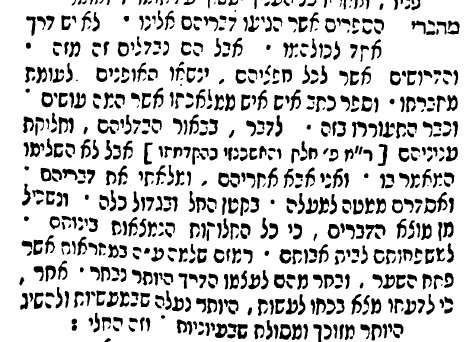
That is, he writes that no two authors write alike, and in the brackets he gives two sources which presumably discuss this [ ר"מ פ' חלק והאשכנזי בהקדמתו] -- that is, the Rambam in Perek Helek and "the Ashkenazi in his introduction," meaning Moses Mendelssohn in Nesivos Shalom, the introduction to the Pentateuch.
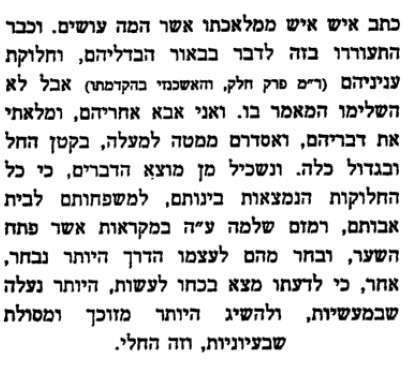
I think it's not too hasty to say that they missed this one.







Great catch!
ReplyDeleteNote that 1863 is after Hirsch's attack on Darkei HaMishna but the publisher did not see any problem including his haskamah.
I would love to see more documents of Frankel in his role as a traditional Rabbi.
Like - http://books.google.com/books?id=xQzuGncH1TgC&lpg=PP1&dq=inauthor%3Abenjamin%20America&pg=PA333#v=onepage&q=Frankel&f=false
I think the point is that you can't write someone out of Orthodoxy on Tuesday and expect everyone to agree on Wednesday.
ReplyDeleteBy the way, if you look at the complete list of haskamos (you can read a list handily here, instead of plowing through the small type) I think it becomes more clear why they didn't reprint the haskamos. Frankel was obvious; Shir probably also would have been left out. But what should they do with Lazar Horwitz? Or other names which they simply could not recognize? So possibly they decided to just not reprint them, although one also wonders what harm there would have been in selecting the obviously "good" ones?
As an aside, how awesome is the name "Rabbi Yechiel Michl Christianopoler ab"d of Brody"?
>I think the point is that you can't write someone out of Orthodoxy on Tuesday and expect everyone to agree on Wednesday.
ReplyDeleteTo continue this point, it's also a fact that he's trying to sell as many copies as possible. In 1863 it was already quite clear that many did not consider the Bresslau Seminary kosher. But the point is that the buying public at the time overlapped in a way that it does not today. You see this in the subscription lists, where you'll find that the author went to Rav Hirsch and then he went to Geiger. Today there would be few seforim if any which would benefit from the haskama of Rabbi Arnold Eisen of the JTS (while admitting that this parallel fails in that CJ has a hundred plus year history while in 1863 the worst that people could say about Frankel is that he was ambiguous).
However, it is notable that despite the fact that people like R. Hirsch surely could not have liked seeing books with haskamos from R. Frankel and the like, this would not have alienated the right wing buying public to the point that they would not buy it because of it.
"you can't write someone out of Orthodoxy on Tuesday and expect everyone to agree on Wednesday."
ReplyDeleteאכשורי דרא unfortunately